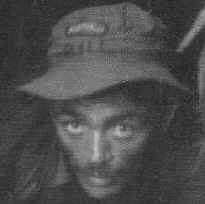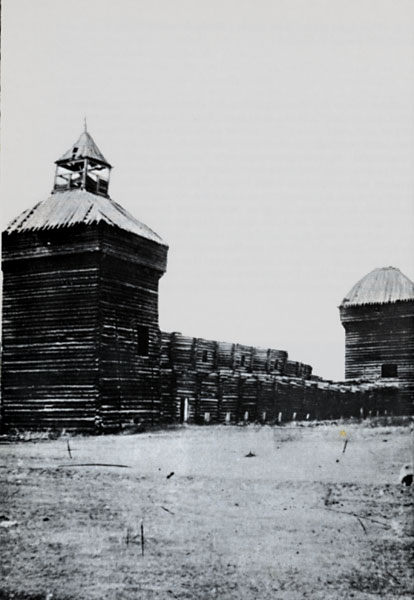| From the House of the Dead | |
|---|---|
| Opera by Leoš Janáček | |
| Native title | Z mrtvého domu |
| Librettist | Leoš Janáček |
| Language | Czech |
| Based on | The House of the Dead by Fyodor Dostoevsky |
| Premiere | 12 April 1930 |
From the House of the Dead (Czech: Z mrtvého domu) is an opera in three acts by Leoš Janáček. The libretto was translated and adapted by the composer from the 1862 novel by Fyodor Dostoevsky. It was the composer's last opera, premiered on 12 April 1930 at the National Theatre Brno, two years after his death.
Composition history[edit]
May 01, 2004 The House of the Dead and Poor Folk, by Fyodor Dostoevsky, is part of the Barnes & Noble Classics series, which offers quality editions at affordable prices to the student and the general reader, including new scholarship, thoughtful design, and pages of carefully. Wanted to share a little part from The House of The Dead that left a deep impression on me, and made me cry for some reason. «I walked about alone and meditated as night fell, when, suddenly, near the palisade behind the barracks, I saw my friend, Bull, who ran towards me.
Janáček worked on this opera from February 1927 to 8 June 1928,[1] knowing that it would be his last, and for it he broke away from the habit he had developed of creating characters modeled on his love interest Kamila Stösslová, although the themes of loneliness and isolation can clearly be seen as a response to her indifference to his feelings. There is only one female character, and the setting, a Siberianprison, presents a large ensemble cast instead of one or several prominent leads. There is no narrative to the work as a whole, but individual characters narrate episodes in their lives, and there is a play-within-a-play in act 2.
From the House of the Dead was virtually finished when Janáček died. Two of his students, believing the orchestration was incomplete, 'filled out' large portions of the score and adapted the ending to be more optimistic in tone. In addition to the work of Břetislav Bakala and Osvald Chlubna, Ota Zitek made changes to the text and sequence of events in the opera.[2] Decades later, a version closer to the composer's intentions superseded that version, and it is the one most often heard today. Some productions, however, still use the earlier version's ending to lessen the bleakness of the story.
The opera requires a vast orchestra, including chains as a percussion instrument to evoke the sound of the prisoners. The words of prisoners' songs from the Dostoevsky novel are used in full or in part by Janáček.[1]
An arrangement in the form of a suite of the opera by conductor František Jílek has been performed by Brno Philharmonic.
 The tunnel rats were American and Australian soldiers who performed underground search and destroy missions during the Vietnam War. Later, similar teams were used by the Soviet Army during the Soviet–Afghan War and by the Israel Defense Forces in campaigns in the Middle East. 'Tunnel rats,' as American soldiers who worked in the Cu Chi tunnels during the Vietnam War were known, used the evocative term 'black echo' to describe the experience of being in the tunnels. As the United States relied heavily on aerial bombing, North Vietnamese. Vietnam tunnel rats Sometimes while on the mission, a Tunnel Rat would meet a Viet Cong soldier, and would then have to engage in exceedingly close combat. Several of these tunnels had sharp U-bends which could be easily flooded to trap and drown intruders. After Saigon fell in 1975, Vietnam preserved the Cu Chi tunnels as war memorial parks. Today, tourists can crawl through parts of the tunnels that are regarded as safe, eat a meal that would have been familiar to a Viet Cong soldier, see the booby traps, and fire an AK-47 on a firing range.
The tunnel rats were American and Australian soldiers who performed underground search and destroy missions during the Vietnam War. Later, similar teams were used by the Soviet Army during the Soviet–Afghan War and by the Israel Defense Forces in campaigns in the Middle East. 'Tunnel rats,' as American soldiers who worked in the Cu Chi tunnels during the Vietnam War were known, used the evocative term 'black echo' to describe the experience of being in the tunnels. As the United States relied heavily on aerial bombing, North Vietnamese. Vietnam tunnel rats Sometimes while on the mission, a Tunnel Rat would meet a Viet Cong soldier, and would then have to engage in exceedingly close combat. Several of these tunnels had sharp U-bends which could be easily flooded to trap and drown intruders. After Saigon fell in 1975, Vietnam preserved the Cu Chi tunnels as war memorial parks. Today, tourists can crawl through parts of the tunnels that are regarded as safe, eat a meal that would have been familiar to a Viet Cong soldier, see the booby traps, and fire an AK-47 on a firing range.
Roles[edit]
| Role | Voice type | Premiere cast, 12 April 1930 (Conductor: Břetislav Bakala[3]) |
|---|---|---|
| Alexandr Petrovič Gorjančikov | baritone | Vlastimil Šíma |
| Aljeja, a young Tartar | mezzo-soprano | Božena Žlábková |
| Luka Kuzmič (Filka Morozov) | tenor | Emil Olšovský |
| Skuratov | tenor | Antonín Pelz / Pelc |
| Šiškov | baritone | Géza Fischer / Fišer |
| Prison Governor | baritone | Leonid Pribytkov |
| Big Prisoner/Nikita | tenor | |
| Small Prisoner | baritone | Jaroslav Čihák |
| Prisoner with the eagle | tenor | Václav Šindler |
| First Guard | tenor | |
| Second Guard | baritone | |
| Elderly Prisoner | tenor | Josef Žižka |
| Voice (offstage) | tenor | |
| Cook (a prisoner) | baritone | Vladimír Jedenáctík |
| Priest | baritone | Adolf Brunner |
| Čekunov | bass | Vladimír Jedenáctík |
| Drunk Prisoner | tenor | Antonín Pelz / Pelc |
| Šapkin | tenor | Valentin Šindler |
| Blacksmith (a prisoner) | baritone | Václav Fiala |
| Prisoner/Kedril | tenor | Jaroslav Suchánek |
| Prisoner/Don Juan/The Brahmin | bass | Pavel Jerner / Ježek |
| Young Prisoner | tenor | Vladimír Skalický |
| Prostitute | mezzo-soprano | Jožka Mattesová |
| Čerevin | tenor | |
| Male chorus: prisoners (taking silent parts in act 2 plays); guests, prison guards (silent) | ||
Synopsis[edit]
Act 1[edit]
A Siberian prison camp on a winter morning
The prisoners get up, two get into a dispute, as the rumour is spread that a nobleman will be the new arrival ('Přivednou dnes pána'). He is Alexandr Petrovitch Goryantchikov, a political prisoner. The prison governor interrogates him and orders him to be flogged ('Jak tě nazývají'). The prisoners have found a wounded eagle and tease the bird until the guards order them to their work ('Zvíře! Nedá se!'). The prisoners lament their fate ('Neuvidí oko již'); one of them, Skuratov, recalls his previous life in Moscow ('Já mlada na hodech byla'). Another, Luka Kuzmitch, tells how he incited a rebellion and killed an officer in his first prison camp ('Aljeja, podávej nitku'). Just as he describes his own flogging, Goryantchikov is dragged in, half dead ('Aljeja! Niti!').
Act 2[edit]
Six months later, at the Irtysh river
Goryantchikov has befriended the young tartar Alyeya, asks him about his family and offers to teach him to read and write ('Milý, milý Aljeja'). The prisoners finish work as a holiday begins and a priest blesses the food and the river ('Alexandr Petrovič, bude prazdnik'). Skuratov tells his story: He loved a German girl, Luisa, but when she was to be married to an old relative, Skuratov shot the groom ('Jaj, já pustý zbytečný člověk' – 'Přešel den, druhý, třetí'). For the holiday, the prisoners stage a play about Don Juan and Kedril ('Dnes bude můj poslední den') and the pantomime about a beautiful, but unfaithful miller's wife ('Pantomima o pěkné mlynářce'). After the play, a prisoner tries to provoke Goryantchikov, as the nobleman has the means to drink tea even in prison ('Pěkně hráli, co?'). Alyeya gets injured.
Act 3[edit]
The prison hospital
Goryantchikov looks after Alyeya, who is happy that he now knows how to read and write ('Isak, prorok boží'). Luka lies dying of tuberculosis and insults Tchekunov for his servile mannerism towards Goryantchikov. Shapkin tells the story of his arrest as a vagrant and how an officer pulled his ear ('Ó, bratři! Ta bolest, to nic!'). Skuratov has gone mad. During the night, Shishkov tells his story, interrupted by the impatient questions of Tcherevin ('Má dět'átka milá'). A rich merchant had a daughter, Akulka, whom a friend of Shishkov's, one Filka Morozov, claimed to have dishonoured ('Ty, pravil Filka' – 'A Filka křičí'). She was married to Shishkov who found out that she was a virgin ('A já byl, bratříčku, až do do svatby zpit'). When he discovered that she still loved Filka, Shishkov killed her ('Na druhý den'). Just then, Luka dies and Shishkov recognises him as Filka. A guard fetches Goryantchikov.

Second scene. A drunk prison governor apologises to Goryantchikov for the whipping and tells him that he has been pardoned and is free ('Petrovičí, já jsem tě urazil'). The prisoners release the healed eagle before the guard orders them back to work.

Recordings[edit]
- Supraphon, 1964: Václav Bednár, Jaroslav Horácek, Ivo Žídek, Beno Blachut, Přemysl Kočí; Prague National Theatre Orchestra & Chorus, Bohumil Gregor, conductor
- Decca, 1979: Dalibor Jedlicka, Jiří Zahradníček, Ivo Žídek, Václav Zitek, Vienna Philharmonic; Sir Charles Mackerras, conductor (recording of original version)[4]
- Supraphon, 1979: Richard Novák, Vilém Přibyl, Jaroslav Horácek, Ivo Žídek, Jaroslav Soucek; Czech Philharmonic Chorus and Orchestra; Václav Neumann, conductor
- Deutsche Grammophon (DVD), 2007: Olaf Bär, Štefan Margita, John Mark Ainsley, Gerd Grochowski; Arnold Schoenberg Choir; Mahler Chamber Orchestra; Pierre Boulez, conductor; Patrice Chéreau, stage director
References[edit]
- ^ abLadislav Šip, 'Leoš Janáček's Last Opera' – essay in LP booklet accompanying Supraphon box SU 5075-76 (translated by Christopher Hogwood), Artia, Prague, 1965.
- ^Hans Hollander, 'Janáček's Last Opera' in The Musical Times, 97(1362), 407–409 (1956).
- ^Archive of the Národní divadlo Brno website accessed 18 April 2017.
- ^Winton Dean, 'Record Review of Janáček: From the House of the Dead'. The Musical Times, 122(1663), 607 (1981).